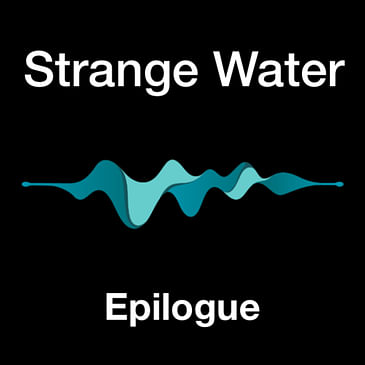In this final episode of the Strange Water Podcast, join us as we announce our exciting acquisition by Blockworks, the end of Strange Water, and the launch of our new podcast, Expansion. We have a fantastic interview with (Expansion cohost) nosleepjon and Blockworks cofounders Mike Ippolito and Jason Yanowitz on all things Expansion and modular blockchains. Thank you for being part of our adventure, and we can't wait to take you along on the next one with Expansion!
Twitter: @ExpansionPod_
Apple: http://apple.co/4bGKYYM
Spotify: http://spoti.fi/3Vaubq1
YouTube: @expansionpod

